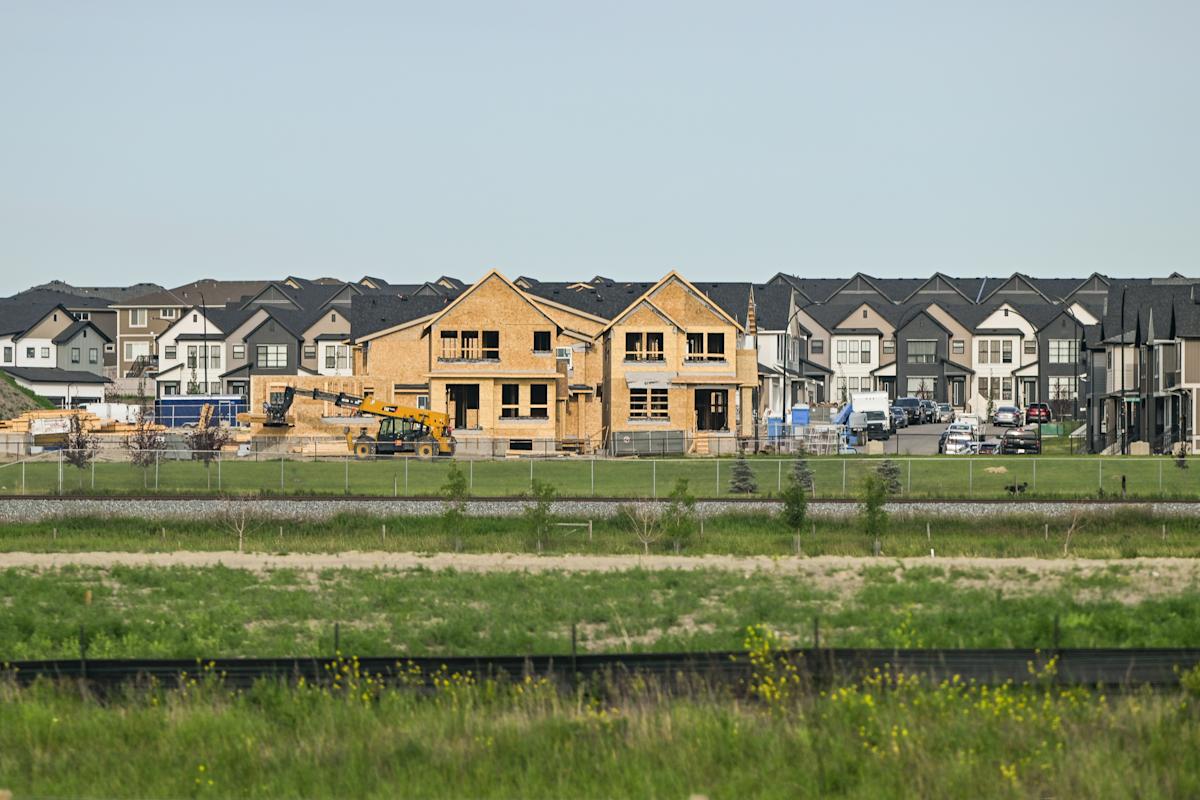Mortgage broker Ron Butler says that for middle-class families, the half-a-percent rise in fixed mortgage rates in recent weeks was another deflating moment. (Photo by Artur Widak/NurPhoto via Getty Images) · NurPhoto via Getty Images
With few — or no — further Bank of Canada (BoC) rate cuts expected this year, the country’s housing market is facing a stark reality: a recovery hinges less on borrowing costs and more on a psychological reset.
For activity to resume, experts say buyers and sellers must abandon hopes of a return to super-low rates and accept that current conditions are the new normal. “As long as they expect things to be better for them if they wait, they’re going to wait,” said Tsur Somerville, a professor of real estate finance at the University of British Columbia.
Confidence is the main issue, not interest rates, says CIBC economist Benjamin Tal. He argues that the economic uncertainty is profound, driven by weak investment, slowing consumer demand and unresolved trade tensions. “We are basically very close to a recession. I suggest we are in a recession in Ontario already,” Tal said.
That lack of confidence is keeping the market in a deep freeze, even as the Bank of Canada held its policy rate steady on Wednesday. While CIBC is calling for two potential cuts later this year, Tal admits it’s a “tough call,” with stubborn core inflation and surprising employment data. By next year, he says, “you have to start thinking about the Bank of Canada hiking rates, not cutting rates.”
This reality is trickling down to buyers, but creating two very different reactions.
For some, stability is enough. In May and June, activity picked up in “hot pockets” of Toronto and Vancouver as some buyers took the central bank’s steady tone as a sign of certainty. “Buyers are using that as, ‘That’s the confidence I need,’” said Samantha Villiard, a regional vice-president at ReMax Canada.
For many others though, the pressure has long been nearly unbearable. Ron Butler, a mortgage broker at Butler Mortgage, says that for middle-class families, the half-a-percent rise in fixed mortgage rates in recent weeks was another deflating moment. Clients tell him: “It’s not just this increasing rate. It’s everything,” he said. “It’s just an endless kind of crushing affordability context that, you know, you can tell from the sound of their voice that this is like a grievance against them.”
I believe that higher rates, namely relative to what they were a few years ago, are here to stay.Benjamin Tal, economist, CIBC
Should fixed rates, which have moved into the “low to mid-fours,” start heading back towards five per cent, Butler warns the effect would be devastating. “It will literally crush everyone’s dreams.”
For those with mortgages renewing, Butler’s advice is urgent. “Go back to every email, every touch point you’ve ever had from your bank and see if they did offer you a rate that started with a three … You have to make absolutely sure you might have access to those low rates.”
Story Continues
Still, some experts argue that an era of higher rates is a necessary correction. Tal says Canadians were “spoiled” by historically low rates during the pandemic, which overheated demand. “I believe that higher rates, namely relative to what they were a few years ago, are here to stay,” he said. “And that’s actually a very healthy situation, because if there was something that was mispriced in the market for a long period of time, it was cash.”
If rates hold steady, housing prices might not fall much further — except in the condo segment, which Tal describes as being in a “deep recession” where pre-sale activity is “basically dead.” Instead, affordability might improve gradually, led by rising wages.
“Every homebuyer is willing to spend up to the maximum they can spend,” said UBC’s Somerville. “So if interest rates stay at this level, then prices will adjust relative to incomes in such a way over time to make housing plausible… The most likely way is prices stay flat while incomes catch up.”
Villiard says Toronto’s stirring market (outside of condos) has both buyers and sellers “coming to the table being reasonable,” but a sustained rebound likely depends on macroeconomic clarity — especially on the trade front.
“The catalyst? A decision on the trade negotiations. That is really what we’re all waiting to see,” she said.
Tal agrees, noting that the Bank of Canada is playing it safe until there’s more certainty on tariffs.
“They don’t want to take any chances with Trump,” he said. “They need more information to make a decision.”
John MacFarlane is a senior reporter at Yahoo Finance Canada. Follow him on X @jmacf.
Download the Yahoo Finance app, available for Apple and Android.

